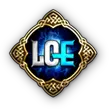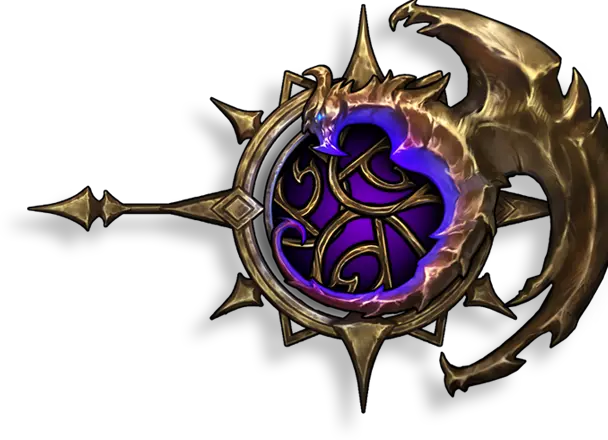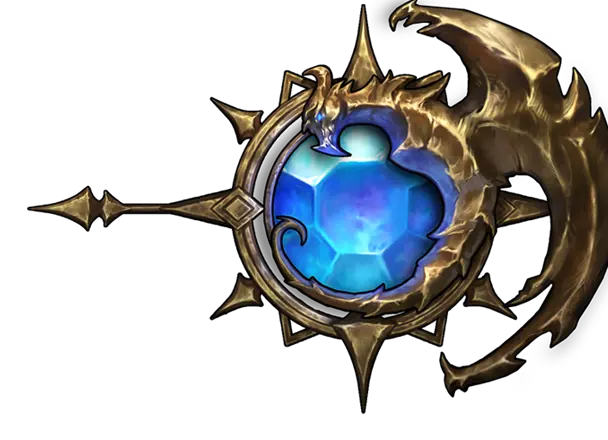Legends of Elysium vs Eternal
Eternal Card Game: A Comprehensive Analysis
Tactic in Eternal TCG
In the crucible of battle, your immediate decisions shape the tide of war. Eternal demands mastery over power management, as each card’s deployment hinges on your available resources. The art of timing is paramount; unleashing a Fast Spell during your opponent’s assault can turn the tables in your favour. Recognising the optimal moments to summon units, cast spells, or hold your ground defines your tactical prowess.
Strategy in Eternal
Beyond the immediate skirmish lies the grand tapestry of your campaign. Constructing a formidable deck requires a harmonious blend of units, spells, and attachments, each aligned with your chosen factions. The five distinct factions—Fire, Justice, Primal, Shadow, and Time—offer unique strengths and synergies. Your strategic vision must encompass resource acquisition, influence management, and anticipating your adversary’s stratagems. The path to victory is paved with foresight and adaptability.
Collectible Aspect in Eternal
As a commander, your arsenal’s diversity is crucial. Eternal boasts a vast array of cards, each contributing to your evolving collection. Cards are acquired through:
- Packs: Expansion sets provide packs containing a mix of common, uncommon, rare, and legendary cards.
- Crafting: Utilize Shiftstone to forge desired cards, tailoring your deck to your strategic needs.
- Campaigns: Engage in story-driven missions to unlock exclusive cards, enriching your collection and narrative experience.
The thrill of discovery and the pursuit of a complete collection fuel your journey.
Trading Aspects in Eternal
While the title suggests a trading component, Eternal functions primarily as a collectible card game. Direct card trading between players is absent. Instead, the game offers a robust crafting system:
- Shiftstone: Earned by destroying unwanted cards, Shiftstone allows you to craft new cards, granting flexibility in deck-building.
- In-Game Store: Purchase packs and preconstructed decks to expand your collection.
This system ensures a balanced and self-sufficient progression for all players.
Gameplay Mechanics in Eternal
The battlefield of Eternal is rich with intricate mechanics:
- Power and Influence: Deploy power cards to generate resources, enabling the play of various cards. Influence determines your access to faction-specific abilities.
- Fast Spells: Cast these spells during your opponent’s turn, introducing dynamic interactions and strategic depth.
- Unit Abilities: Units possess unique skills—such as Flying, Charge, and Deadly—that can alter the course of battle.
- Attachments: Equip units with weapons and relics to enhance their capabilities or hinder your opponent’s forces.
Mastery of these mechanics is essential to outmanoeuvre your adversaries.
What Sets Eternal Apart
Eternal distinguishes itself through several key features:
- Generous Free-to-Play Model: All cards and game modes are accessible without monetary investment, rewarding dedication and skill.
- Cross-Platform Play: Engage in battles across multiple devices, ensuring a seamless and versatile gaming experience.
- Continuous Content Updates: Regular expansions and campaigns introduce new cards and mechanics, keeping the gameplay fresh and engaging.
- Deep Strategic Complexity: The interplay of factions, card abilities, and real-time decision-making offers a depth that appeals to both novices and veterans.
In the realm of digital card games, Eternal stands as a testament to strategic depth and player-centric design. Your journey through its rich landscapes and challenging battles will be both rewarding and invigorating.
Legends of Elysium compared to Eternal – Gameplay Mechanics
In Legends of Elysium (LoE), gameplay mechanics go beyond the conventional card game format by integrating board control into the heart of the experience. Unlike Eternal TCG, where matches revolve primarily around card synergies and power management, LoE introduces a hex-based battlefield that demands both tactical positioning and resource management. Each move isn’t just about playing cards—it’s about controlling terrain, navigating obstacles, and adapting to ever-changing battlefield conditions. Players must carefully terraform the board to meet the requirements of their cards while also preventing opponents from controlling key strategic points. This adds a spatial layer to the game, making every action—whether it’s summoning a unit, casting a spell, or expanding territory—a critical decision that can shift the balance of power. By intertwining traditional TCG mechanics with board game tactics, Legends of Elysium offers a dynamic experience where victory comes not only from card mastery but also from an astute understanding of battlefield control, creating a richer, more immersive challenge for strategists.
Legends of Elysium like Eternal – Similarities
Both Legends of Elysium and Eternal TCG share a foundation built on classic trading card game mechanics that seasoned players will find familiar and welcoming. At their core, both games embrace the timeless pillars of deck-building, resource management, card rarity, and turn-based combat. In each, players must carefully construct decks from a pool of cards, balancing offensive and defensive strategies while managing finite resources to ensure the most efficient plays each turn. The concept of mana or power serves as a central resource system in both games, requiring players to make tactical decisions about when and how to deploy their cards to maintain control of the battlefield. Additionally, the presence of keyword abilities such as Flying, Charge, or Deadly provides both games with layers of depth that encourage thoughtful deck-building and gameplay. Like Eternal TCG, LoE offers spells, units, and heroes that players can customise to suit their playstyle, along with special card abilities that trigger unique effects during matches. While each game delivers these features in distinct ways, they both provide players with dynamic and ever-evolving challenges that reward strategy, adaptability, and foresight in combat. This shared heritage ensures that players familiar with traditional TCGs will feel right at home in Elysium, while still encountering fresh twists that distinguish the experience.
Legends of Elysium vs Eternal – Key Differences
While both Legends of Elysium (LoE) and Eternal TCG share the essence of deck-building and strategic card battles, the divergence lies in their unique approaches to gameplay depth and player engagement. The defining feature that sets LoE apart is its integration of a hex-based tactical board, turning matches into more than just card duels—it transforms them into a war for territorial control. Unlike Eternal’s focus on hand management and card synergy, LoE challenges players to consider spatial positioning, terrain manipulation, and hero movement on the board. Furthermore, LoE embraces a phygital model, merging the digital and physical realms by allowing players to own both NFT cards and physical collectibles, granting real-world value to in-game assets. Additionally, LoE offers a more narrative-driven experience, with heroes deeply tied to the game’s lore, influencing not just gameplay but also the evolving story of Elysium. Where Eternal provides a polished digital TCG experience, LoE goes beyond, crafting a multifaceted world that rewards both tactical mastery and long-term investment, giving players the sense of being part of an ever-expanding legend.
Tactic and Strategy in Legends of Elysium
In the ever-evolving world of Legends of Elysium, victory is not determined by luck or brute force, but by your ability to think ahead, adapt to the battlefield, and outmanoeuvre your opponents. Tactical prowess begins with understanding the game’s unique hex-based terrain control. Each turn presents a choice—expand your lands, summon units, or strike with precision—all while anticipating your enemy’s next move. Unlike traditional TCGs that rely solely on card draws and hand management, LoE introduces dynamic board positioning, requiring players to master spatial awareness and utilise special fields for strategic advantage. On the strategic front, LoE elevates the challenge with its intricate deck-building mechanics. Players must craft decks that synergise with both the hero’s abilities and the ever-changing board conditions. Unlike linear card combos seen in other TCGs, LoE rewards adaptive planning, encouraging players to shift tactics mid-game based on the evolving battlefield. The balance between short-term tactics and long-term strategy is key—making every decision a potential turning point in the grand battle for Elysium.
Legends of Elysium as Alternative to Eternal
For adventurers seeking a fresh challenge, Legends of Elysium (LoE) offers a revolutionary alternative to the traditional digital card game experience found in Eternal TCG. Where Eternal excels in delivering a fast-paced card battler with familiar TCG mechanics, LoE elevates the experience with its unique fusion of board game tactics and card strategy. This hybrid gameplay provides an added layer of depth, where every hex on the battlefield holds potential for victory or defeat. LoE’s focus on hero customisation and phygital ownership introduces elements of personalisation and true asset ownership that Eternal lacks. Moreover, the game’s integration of blockchain technology allows players to truly own their in-game assets, trade them freely, and even stake them for rewards. LoE’s narrative-driven gameplay and evolving lore also provide a richer, more immersive world to explore, making each player’s journey through Elysium a personal story of triumph and strategy. For players who crave not only competition but also a dynamic, evolving adventure, Legends of Elysium delivers a game world that responds to their decisions and rewards their mastery with tangible in-game and real-world benefits.
Conclusion
Legends of Elysium beckons to those who dare to shape their destiny through wit, courage, and cunning. As you step into the rich world of Elysium, you’ll find a game that challenges not just your mastery of cards, but your ability to command the battlefield with tactical prowess and strategic foresight. Unlike traditional TCGs, LoE invites you to forge your own legend, where every hero, spell, and hex matters. Its immersive lore, combined with intricate board mechanics, transforms each match into a living story—a tale where your choices and victories echo across the land. Whether you are a seasoned strategist seeking a new frontier or a tactician eager to test your skills, LoE offers an arena where champions are made, not born. The time has come to stake your claim in this epic saga. Will you rise to become a legend of Elysium, or will your story be one of untapped potential? The battlefield awaits, hero. Your journey begins now!
| Aspect | Legends of Elysium (LoE) | Eternal |
|---|---|---|
| Gameplay Mechanics | Combines traditional TCG elements with a tactical hex-based board, requiring spatial control, unit placement, and resource management. | Classic TCG mechanics with a focus on resource management, card synergy, and power management during turn-based combat. |
| Strategic Depth | Deep strategy with complex deck-building, long-term planning, and tactical positioning on a dynamic battlefield. | Focused on card synergy and resource management, with strategic depth found in timing and hand management. |
| Resource Management | Mana management integrated with terrain control and board-based strategies, with a unique land-terraforming feature. | Primarily uses mana as a resource to deploy cards, focusing on the optimal use of power and fast spells. |
| Card and Unit Synergy | Cards have land requirements, and units can be placed based on hex placement and strategic terrain control. | Cards rely on synergy, with limited focus on board control, more emphasis on managing resources and playing spells at the right time. |
| Hero Customisation | Heroes have specific abilities based on race and class, influencing resource generation, combat style, and overall strategy. | Heroes or champions are not a major focus; the game centres more on card choices and resource management for the player’s deck. |
| Game Economy | Play-and-earn model, with NFT ownership, tokenisation, and rewards for skill-based gameplay, and phygital (digital and physical) collectibles. | Traditional collectible card game model with in-game purchases for packs, crafting, and tournament entry. No NFT integration. |
| Immersion and Lore | Rich lore-driven world with heroes that have deep stories, affecting gameplay and long-term strategic choices. | Focuses primarily on gameplay mechanics without significant lore or character-driven stories influencing the strategic elements. |
| Player Experience | Designed for hardcore gamers with complex strategies and tactical depth; accessible to newcomers willing to learn. | Suitable for players who enjoy straightforward, fast-paced TCG battles with less emphasis on tactical movement. |
| Visual and Design Quality | AAA quality visuals with fluid mechanics and a polished design that provides an immersive experience across platforms. | Solid but more traditional design with a focus on the card mechanics and less on visual innovation or immersion. |







